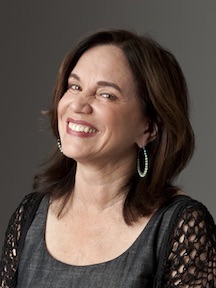By Benjamin Purper
In the world of public radio, Renee Montagne has worn a lot of hats. She’s worked on National Public Radio’s Science, Arts, and Foreign Desks, reported from Afghanistan, and famously hosted NPR’s flagship program Morning Edition for twelve years. But now that she’s moved on from hosting, she’s trying her hand at investigative reporting—and winning awards for it.
“When I was leaving Morning Edition, it was really left to me to decide what I wanted to do [at NPR],” she said in a phone interview. “And so I thought, boy, the one thing I have not done is investigative work in a deep way.”
That led her to NPR’s investigative unit, where she began working on a collaboration between NPR and the investigative news organization ProPublica. The project was about maternal mortality: mothers dying during or after childbirth due to preventable complications.
“It turned out to be so far above my or Nina Martin, who I worked with, either of our expectations,” Montagne said. “She has a long history in women’s health, so I wasn’t alone in thinking this will make a story or two, and hopefully somebody will listen. It became far more than that.”
Montagne and Martin’s investigation came to be called “Lost Mothers,” published by both NPR and ProPublica. It was a combination of data journalism, investigative reporting, and narrative storytelling that delved into the maternal mortality rate in the United States.
Montagne and Martin found that not only does the U.S. have the highest rate of maternal deaths in the developed world, but also 60 percent of those deaths were preventable.
One story in the series also found that African-American mothers are especially vulnerable to preventable complications. According to one dataset, their mortality rate was seven times higher than their white counterparts.
Montagne and Martin’s reporting had far-reaching impacts. Legislators in New Jersey introduced a bill to monitor maternal deaths and encourage hospitals to adopt new protocols aimed at preventing maternal deaths in direct response to the story. It also won Montagne and Martin the George Polk Award in Journalism, as well as the Goldsmith Prize for Investigative Reporting from Harvard’s Shorenstein Center on Media, Politics, and Public Policy.
But it’s not just bills and awards that make this kind of work gratifying for Montagne; she and Martin have received messages from mothers saying that the “Lost Mothers” series saved their lives.
One mother reached out to Montagne and Martin to tell them how their reporting made her realize that she had preeclampsia, one of the preventable complications responsible for killing mothers after childbirth.
Montagne said, “She got worse and worse, and then her husband heard my piece on the radio. And then they read the piece, and she said, ‘Oh my god, this is what I’ve got.’ And she went to the emergency room, and that emergency doctor said, ‘No, you’re okay.’ She said, ‘No, I’m not.’”
Montagne said it was gratifying to know her work had directly saved lives.
“This kind of work, I can really see the gratification. And it’s so different from hosting a show, even the most wonderful show in the world, like Morning Edition,” Montagne said.
Montagne is a Phi Beta Kappa alumni from the University of California, Berkeley. She says she didn’t know much about the organization when she was invited, but her father did.
“One thing I remember was how delighted and thrilled my father was. Because he was a champion [of women], way early before his time, you know. He was a feminist without knowing it.”
Like winning the Polk and the Goldsmith awards, Montagne felt that being inducted into Phi Beta Kappa was both an honor and a prize.
“This was so much better than a good grade—it was an honor. It was like a prize,” she said. “And I didn’t ask for it, but I felt I earned it. So, it really was a great source of pride.”
Benjamin Purper graduated Phi Beta Kappa from the University of Redlands in 2017, having majored in international relations with minors in music and Latin American studies. University of Redlands is home to the Xi of California Chapter of Phi Beta Kappa.




